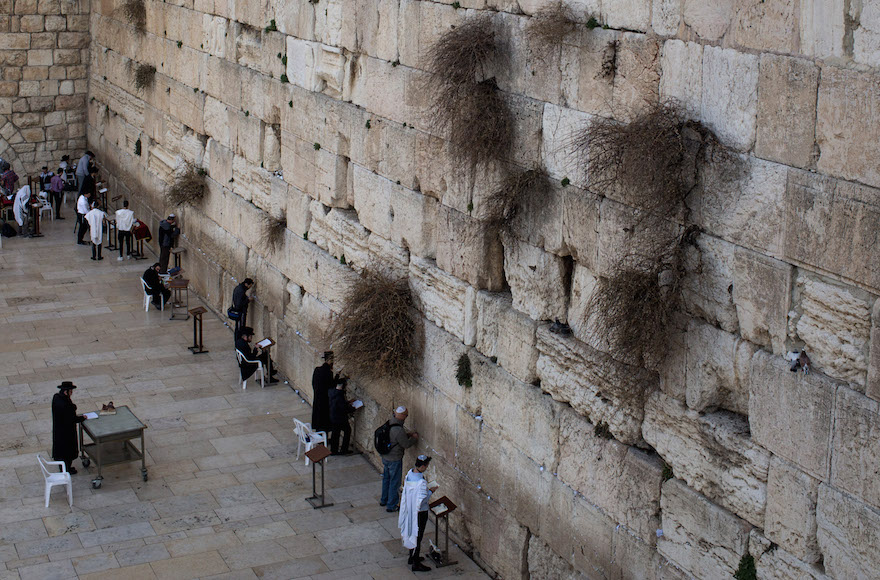JERUSALEM (JTA) — The plan to upgrade the Western Wall’s egalitarian section is nearly certain to pass a Knesset committee after a proponent of the plan replaced an opponent who resigned in protest.
Justice Minister Ayelet Shaked asked Prime Minister Benjamin Netanyahu on Sunday to allow her to resign from the Knesset Committee for Holy Places. Shaked appeared to be heeding the 300 rabbis who signed a letter asking her to vote against the plan. Shaked is a secular Israeli but serves in the right-wing, pro-settler Jewish Home party.
Later Sunday, Netanyahu replaced Shaked on the committee with Energy Minister Yuval Steinitz of Likud, a supporter of the plan. Non-Orthodox Jews in the Diaspora have been especially vocal in demanding space at the Wall where they could pray beyond the authority of its haredi Orthodox caretakers.
Shaked’s resignation follows that of committee chairwoman Miri Regev, who said Thursday that she had “decided to be faithful to my conscience” and vote against the plan. The chair’s permission is necessary to advance the plan. Netanyahu, who is pushing the plan, took Regev’s place as head of the committee.
The third member of the committee is Religious Services Minister David Azoulay of the Separdic Orthodox Shas party, who will vote against the plan.
Steinitz told the Israeli daily Maariv, “I think this is the right thing to do. This is in continuation to my previous opposition to the cancellation of the Western Wall plan and to the unnecessary harm to millions of Reform and Conservative Jews.”
Regev doubled down on her rejection of the plan, reportedly saying Sunday during the Cabinet meeting, “I’ve met Reforms in Argentina. They were very nice, but they should be Reform in Argentina. Here in Israel they should behave” as Israel expects them to.
Plans to renovate the site, with a budget of more than $7 million, have continued, despite the suspension of a comprehensive plan approved in 2016.
In June 2017, the Cabinet suspended the deal as a result of negotiations between the Reform and Conservative movements, the Women of the Wall, the Jewish Agency for Israel and the Israeli government. The suspension came after the government’s haredi Orthodox coalition partners pressured Netanyahu to scrap the agreement, including threatening to bring down the government.
The plan would have included a common entrance to the Western Wall plaza for all three sections and a public board to oversee the egalitarian prayer space and would include representatives of the non-Orthodox movements and Women of the Wall.
JTA has documented Jewish history in real-time for over a century. Keep our journalism strong by joining us in supporting independent, award-winning reporting.






